The Great War Centenary: Part One, The Tinderbox
World War One started with the assassination of the heir to the Austrian throne, Archduke Franz Ferdinand, in Sarajevo. Why would a political assassination in Bosnia spark a global war?
This is Part One of a series of posts leading up to the centenary of the end of The Great War on November 11, 2018. For the introduction please see The Great War Centenary: Introduction.
The pre-1914 political landscape
To understand what caused the outbreak of a devastating war between the great European powers in 1914, one has to understand the political landscape of Europe and the Ottoman Empire at the time. The causes will be found there.
Up until 1914, Europe had experienced an unusually period of relative peace for over forty years. The main powers had built alliances aimed to stop the aggressive behaviour by states — such as Germany in 1870. This had kept the peace by preventing any one nation taking a major dominating role in Europe.
Franco-Prussian War
The Franco-Prussian War (July 1870 to January 1871) was a conflict between France and the North German Confederation led by the Kingdom of Prussia. There was no unified state called Germany at the time. There were, however, Prussian ambitions to create a unified German state by extending the North German Confederation to the southern German states — Baden, Württemberg, Bavaria and Hesse-Darmstad.
The French feared that if the Prussians succeeded this would shift the balance of European power in their favour. The Napoleonic wars had brought great turmoil, destruction and misery to Europe. The Congress of Vienna of 1815, following on the defeat of Napoleon, sought to rebuild the boundaries, but also, importantly, to make sure that there would be a balance of power amongst the states.
So the French declared war on Prussia. Prussian chancellor Otto von Bismarck is thought to have deliberately provoked the French into declaring war on Prussia in order to draw the independent southern German states into the Confederation. The Germans prevailed, much to the surprise of the rest of the world. Eventually, Paris was put under siege and the French surrendered.
This had two major consequences:
- A unified German Empire, under the Prussian king Wilhelm I, was created, disturbing the balance of power
- The French were particularly embittered by this and France fell into chaos and military decline for years
Alliances
In 1887 Germany entered into a secretive alliance (Reinsurance Treaty) with Austria-Hungary. This was followed by the Dual Alliance (1879) which was a defensive alliance between the two powers. In particular, they would support each other if attacked by Russia, and have "benevolent neutrality" if attacked by another European power (read France). This alliance was further strengthened by the signing of a secret agreement (the Triple Alliance, 1882) with the two powers plus Italy. It promised mutual support for each other if attacked by any other great power. (Italy never honoured this agreement and stayed out of the war in 1914.)
In reaction to the Triple Alliance of 1882 and spooked at the rumour that Britain would join the Triple Alliance, the Franco-Russian Alliance was formed in 1891. This strengthened economic and military ties between the two countries. With Russian support, France intensified its colonial policy, a fact that didn't go unnoticed by the Germans. And because of this alliance, Germany was forced to fight on two fronts from the beginning of the War.
In the 1890's French efforts to isolate Germany became successful. They made great efforts to woo Britain and Russia into a new alliance. Britain abandoned its “splendid isolation” policy in the 1900s after having been isolated during the Boer War, and concluded the agreements (the Triple Entente, 1907), limited to colonial affairs, with its two major colonial rivals, France and Russia. It had rejected Germany as an alliance partner because it felt Germany was too weak as a counterbalance to the other powers and could not provide it with the imperial security by the Triple Entente.
Britain, under the Triple Entente, was not obliged to intervene on the sides of its allies, France and Russia. In fact, Britain had extremely good relations with Germany. At the outbreak of the war, Germany thought that Britain would stay out of the war, and indeed there was little interest within Britain in doing so even after German troops invaded Belgium and France.
What they had chosen to ignore was the Treaty of London of 1839, where Britain promised to defend Belgium.
Tensions rise
A number of events helped to both strengthen the alliances and grow tensions in the region:
- The First Moroccan Crisis, 1905. Kaiser Wilhelm II, envious of the colonial powers, visited Morocco and denounced the French. It was a test of the strength of the recent Anglo-French entente. The visit provoked an international crisis which was resolved in France's favour. This brought France and Britain closer together. Edward VII called the German actions “the most mischievous and uncalled for event which the German Emperor has been engaged in since he came to the throne.”
- Second Moroccan Crisis, 1911. The Germans had sent a gunboat to a Moroccan port to protect German citizens there and blamed the French for breaking a treaty. This provoked a major war scare in Britain until the Germans agreed to leave Morocco to the French in return it for rights in the Congo. Many Germans felt that they had been humiliated and that their government had backed down.
- The Annexation of Bosnia-Herzegovina, 1908. The two Turkish (Ottoman Empire) provinces had been administered by Austria since the Congress of Berlin. Austria annexed Bosnia after tricking Russia during negotiations between their respective foreign ministers. The action outraged Serbia as there was a large Serbian population in Bosnia. There was a crisis among the Great powers and it brought Europe to the brink of war. Russia bowed to German pressure when it supported Austria and they agreed to the annexation. Russia had been humiliated and it would not be humiliated again.
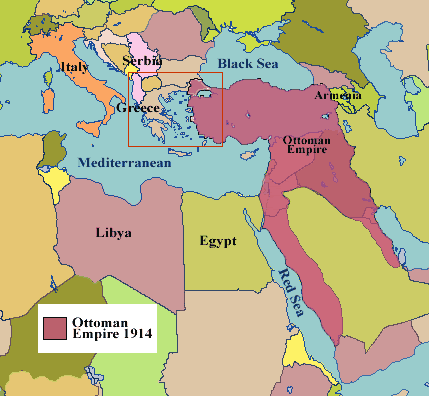
Extent of the Ottoman Empire 1914
The Ottoman Empire
The great European powers were keen to extend imperialism to the Balkans, a group of countries in the Balkan Peninsula in eastern Europe. The Ottoman Empire, which had ruled the area, had lost land in the Balkans to the inhabitants: Serbia, Bosnia and Herzegovina, Croatia, Slovenia, etc. Austria and Russia, in particular, had a great rivalry over this area, and their relations were poor. As the Ottoman Empire receded, so did Russian and Austrian ambitions soar.
This also fueled the growth of Slav nationalism among the Baltic people, especially in Serbia. Russia encouraged Slav nationalism while Austria worried that it would undermine her empire. Russia supported Serbia — which was very bitter at the annexation of Bosnia and saw herself as Serbia’s protector.
The Balkan Wars (1912 - 1913) had caused Serbia to double in size. There were growing demands for unification with the south Slavs (Yugoslavism) under the leadership of Serbia. Austria, with large south Slav population in its provinces, grew very alarmed at the threat of Serbia state.
The four great themes
Historians have classified the movements and events outlined above to classify the causes of the First World War:
Mutual Defence Alliances
As we have seen that the laudable aim of balancing the Great European Powers had caused a set of alliances to be formed. Before the Great War, the following alliances were in place:
- Russia and Serbia
- Germany and Austria-Hungary
- France and Russia
- Britain and France and Belgium
- Japan and Britain
These alliances caused a domino-effect as the allies were drawn into the conflict one-by-one:
- Austria-Hungary declared war on Serbia, Russia came in to defend Serbia
- With Russia mobilising, Germany declared war on Russia
- France, on the side of Russia, was drawn in against Germany and Austria-Hungary
- Germany attacked France through Belgium, dragging Britain into war
- Japan entered the war as an ally of Britain
Later, Italy and the United States would enter on the side of the allies.
Imperialism
The 19th-century European colonial powers competed against each other to bring further territories under their control. This was not just about power but the quest for valuable raw materials.
Britain and France were the dominant colonialists in Africa. Germany, which was not a unified state when this race began, was deeply envious and this was a great source of tension between the powers.
Militarism
A massive arms race developed between Britain and Germany at the turn of the century. Britain had a formidable naval fleet and Germany raced to compete. Which spurred even greater growth from Britain. France and Russia too modernised their military and added to the militarism engulfing the continent. This led to the military establishment, particularly in Germany and Russia, having a greater influence on public policy.
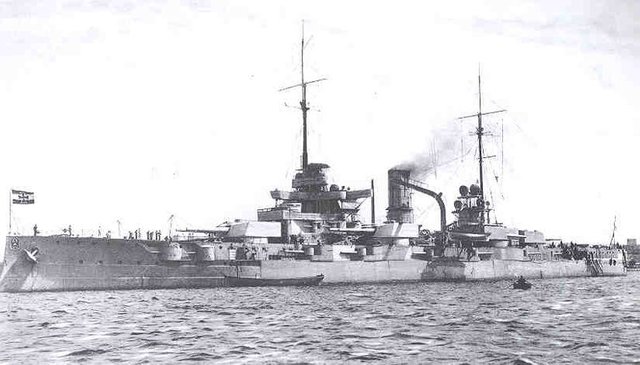
German Nassau class battleship
Militarism provided a huge impetus for the countries to get involved in the War.
Nationalism
There was growing nationalism of the Slavic people in Bosnia and Herzegovina to no longer be part of Austria Hungary and instead be part of Serbia. With the massive growth in the size of Serbia, the people were convinced that a Slavic nation was possible and desirable.
Nationalism in the other European countries was also growing. In Germany, where citizens were subservient to the state and to the nation, the people were extremely keen to go to war and seek their revenge on the perceived humiliations they had suffered.
Nationalism ensured that the various nations believed they were superior to the others and that they would and should prevail.
The Tinderbox
Europe was a tinderbox, just waiting for a spark. That spark came from an unlikely source, but it caught fire. And boy, did it burn.
This series on World War One will be continued in Part 2, tomorrow
Previous post in this series:
The Great War Centenary: Introduction.
References:
The Guns of August, Barbara Tuchman
http://www.nationalarchives.gov.uk/education/greatwar/g2/backgroundcs1.htm
https://www.historyonthenet.com/world-war-one-causes-2/
https://en.wikipedia.org/wiki/Causes_of_World_War_I#German_re-alignment_to_Austria-Hungary_and_Russian_re-alignment_to_France,_1887%E2%80%931892
https://www.thoughtco.com/causes-that-led-to-world-war-i-105515
Also posted on Weku, @tim-beck, 2018-11-05
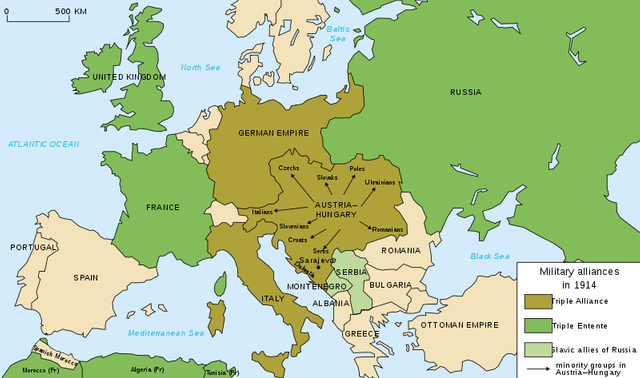
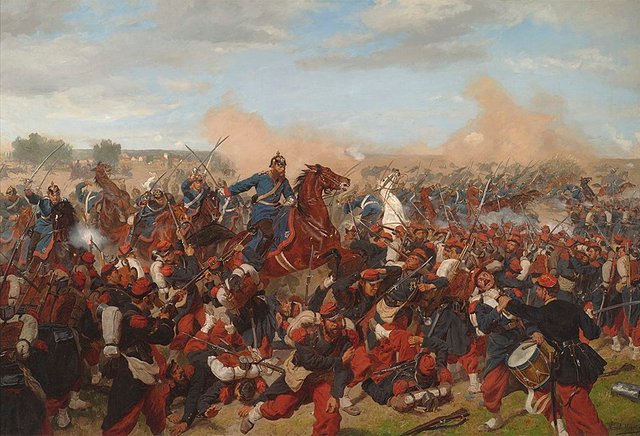
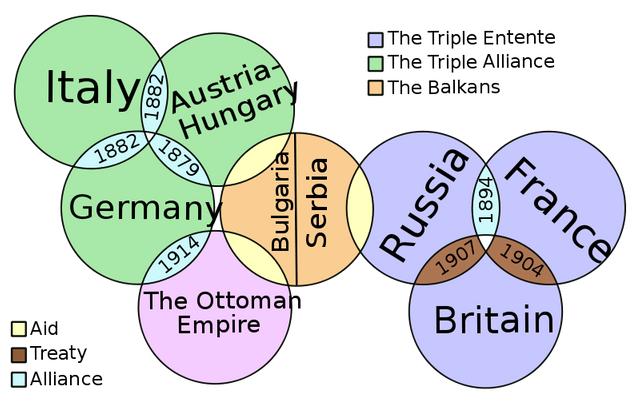
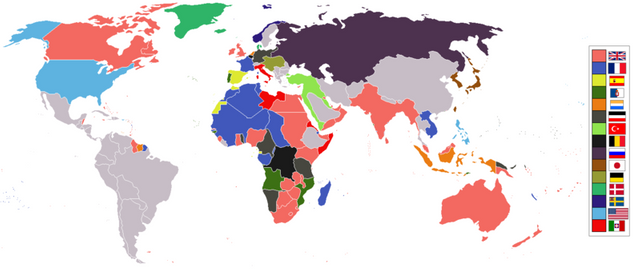
Hi tim-beck,
Visit curiesteem.com or join the Curie Discord community to learn more.
Thank you for your support, @curie
So it wasn't just the assassination but all other things that have being happening underground... All boils down to the thirst for power though....
I know very little about history, well, yours wasn't boring yo read... Great article...
Thank you. Yes, history shouldn't be boring. It's not just a bunch of facts but a whole bunch of stories involving real people doing sometimes remarkable things, sometimes ordinary things.
Yes yes, these are what make history. Stories! And stories always are interesting but I dunno how sometimes relating it might seem boring. You do a great job!
This is a nice piece of history. A new location added to my knowledge now is Prussian. Never heard of that before now.
The alliances that were made back then...
Did this also go with the war or they still hold till date.
The alliances held for the duration of the war, except for the Triple Alliance (Germany, Austria, Italy), where Italy didn't join at first and made a secret pact with France to support her. Italy then joined on the side of the Allies later on.
World War 2 changed things a lot. There were two main alliances, the Allies (mainly the Western countries and the Soviet Union) and the Axis (Germany, Italy and Japan). After the war the world split along two main power blocks, the West (NATO) and the Eastern block, with the Soviet Union at its heart.
I had so much pleasure reading your post. I loved history at school, especially World War I. There were so many connections between countries that are not to be believed nowadays. And so much tension that it was a pot with hot boiling water about to explode. And this is what happened with assassination. It was just an excuse to start the war that was expected for long time.
I like how you explain certain events. I struggled to understand some connections at school but you write it in such an easy and understandable way that everything what you say is clear. I'm looking forward to the continuation and especially to the posts about World War II.
Thank you for sharing!
Thank you, @delishtreats for your encouraging words
I love me a good story of real strategy and war tactics. I think I learned to love history from the WW inspired games I've come across and this post was entertaining for me to relate to some instances. You did an amazing job researching this and I can't imagine the amount of info you had to sift through to get to this point. :D
Thanks, @adamada. Yes, it was a lot of work. I'd planned to do this all along - to write down what I'd learnt over the course of the last 4-and-a-half years, but writing it was far more difficult than I thought it would be. Anyhow, I'm glad I did it
Howdy from Texas tim-beck! wow this is a great tutorial on the start of the Great War and the way you break down the causes of the conflicts between countries is actually understandable which is no small feat!
So great job and the circular chart helps alot. This is a well deserved curie post for sure!
Thank you @janton. I'm pleased you enjoyed it.
200,000 Texans served in the Great War. Three earned the Medal of Honor, and over 5,000 lost their lives. They shall not be forgotten.
howdy again tim-beck! thank you for all the education you provide, I had no idea that number of Texans served in WWI, that's amazing.
excellent document, very good chronicler is you @tim-beck, the history of wars in Europe is a story of never ending, but it was precisely the first world war that changed the geopolitics forever. imperialism always seek the same territory and strategic resources for its expansion. there is no bellishness of that time, even dare I say for the last movements of NATO that their navies are not so modernized, but their goal is the same as the establishment of empires, and wars followed only that in other latitudes and under other formats.
great historical illustration, thank you for sharing.
greetings
Thank you, @arrozymangophoto. You're right, the First World War changed everything and set the table for all the events that followed - to this day.
Hi tim-beck,
This post was nominated by a @curie curator to be featured in an upcoming Author Showcase that will be posted Late Saturday/Early Sunday (U.S. time) on the @curie blog.
NOTE: If you would NOT want us to feature your post in the Author Showcase please reply, email, or DM me on Discord as soon as possible. Any photos or quoted text from your post that we feature will be properly attributed to you as the author.
You can check out our previous Author Showcase to get an idea of what we are doing with these posts.
Thanks for your time and for creating great content.
Akpan (@curie curator)
[email protected]
Thank you for your support @misterakpan / @curie - much appreciated
Fascinating account and excellent details and presentation. I was just ranting about how Armistice Day is the true intention of celebrating peace and Veteran's Day is about propagating the culture of war and empire in this land of the USA, very sadly. peace
Yup, great observational rant. Thanks, @clumsysilverdad
I love history and war so it was a great read. I have been fortunate enough to travel around France looking at various battlefields and so far the worst one was Vimy ridge.
Thanks, @cryptoandcoffee. I've done a bit of that in northern France and intend to do a whole lot more. I didn't write about Vimy Ridge in particular since it occurred immediately before Passchendaele. But I think it does need more attention, particularly for the huge significance it had on Canada. So bookmarked for a later post (the list is growing).
What sites have you been to already. There are some excellent ones for both wars there. I used to try go once a month. There is a reasonable hotel in D'Arc called The Grand . Paid around 35 euros for a family room that had 3 bedrooms. Must have gone up but won't be that much more and that was only 3 years ago when I checked.
It's a bit more tricky for me since I'm in South Africa. Last year my family and I visited Delville Wood Cemetery near Longueval. It was a very moving experience, particularly since we first walked through the Wood where you can still see the traces of the trenches - some still quite deep. Knowing a bit about that battle just made it so real. And then walking through the huge cemetery where all those young men from the UK, South Africa, Australia, Canada and New Zealand lie side by side.
Of course, this was part of the Somme, so we saw many more graveyards in the area but time wasn't on our side.
Thanks for the tip on The Grand in D'Arc - that could make the next trip more affordable.
Hey Tim. I am also in South Africa and we have to make the Rand's stretch. When I lived in the UK it was handy so the trips over are obviously not as frequent these days.
I find it alarming still that they have to still have signs up that you have to walk on the pathways and dogs have to be on leashes due to all the ordnance still lying around the area.
The Grand is in a good situation as you are 10 minutes from St Omer which has a great farmers market in the square. Le Coupelle is nearby and if you haven't been is a must. The bunker which still stands is also close by but the opening times you need to check as it is privately owned.
Excellent tips, thank you. I'll remember to check with you when planning the next trip